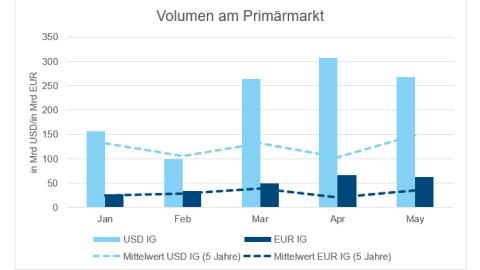The big chateaux in the Bordeaux region, Hofbräuhauses, and abbey distilleries: alcohol is a distinctive cultural good. It is not by accident that big events are always accompanied – and fuelled – by alcoholic beverages.
However, the same mechanisms that nurture joyful exuberance can cause the opposite effect in case of overindulgence: the lifted mood can quickly turn into spleen and aggression. To this day, pharmacologists have not been able to fully understand how the same substance can trigger such contrary effects.
The risks resulting from excessive alcohol consumption are the reason why our research partners have awarded alcohol a negative rating from the perspective of the UN’s sustainability goals across the board. Their rationale is that a drug is not less dangerous just because it is culturally significant. For example, khat is of central cultural importance in Yemen, but at the same time it uses up half of the water in the country, causes enormous economic harm, and has led to the world’s highest rate of mouth, tongue, and oesophageal cancer.
From a sustainable investor’s point of view, it is also important to be aware of these risks and to include them in the ESG assessment of the companies. The product itself is as important as the production conditions.
Protection of high-risk customer groups
Our partners cite the promotion of responsible consumption and marketing as most important criteria. Pernod Ricard stands out as the company that cares most about the protection of high-risk customer groups.
A central topic is the protection of minors. The most important companies do not advertise in the environment of children and young people and only show adults in their commercials. The campaigns do not depict excessive alcohol consumption or suggest that alcohol boosts self-confidence or social acceptance.
One weakness across the industry that our research partners have identified is the gap in terms of sustainability efforts between companies in Western markets and those in emerging markets. Although some companies have launched programmes to curb DUI activities in Columbia and Namibia, the overall situation in emerging countries remains unsatisfactory.
Water shortage causes problems
The second factor are the production conditions. Climate change and the worsening water shortage are threatening more and more growing areas. While irrigation is currently still illegal for the vines of top-quality European wines with protected designations of origin, the expected book losses of vineyards will be immense if growing vines in the specific regions becomes impossible. One hectare of cultivable area in the Champagne region is currently worth more than EUR 1mn. Therefore, an increasing number of vineyards allow irrigation, which increases the burden on local water supply further. This has become costly yet common practice in at-risk areas such as California and Australia.
Beer, too, is in danger: more than a third of global barley production comes from regions with extreme water shortages. As one of the first companies, ABInbev has therefore rolled out a water management regime across its entire supply chain. Companies such as Diageo and Treasury Wine are confronting these risks through improved methods of cultivation that put to the fore soil quality and bio diversity. But overall, the activity reported in connection with measures aimed at averting climate change is still relatively subdued.
Rising costs for improved sustainability
Environmental risks may yield two positive aspects. The endangerment of global cacao production has made the fate of the farmers a priority for the chocolate industry. The same thing could happen here. We also expect rising costs to put pressure on discounters in favour of the producers of premium brands, which typically also excel in better sustainability efforts.
Finally, some good news: rum – that cosy drink warming us around Christmas – is relatively less at risk than other beverages, according to our partners.
Read more articles from this issue of our ESG letter here.
*ESG stands for Environmental, Social and Governance“ – These are the three broad categories according to which companies are examined in sustainable investment.
Legal note:
Prognoses are no reliable indicator for future performance.
Legal disclaimer
This document is an advertisement. Unless indicated otherwise, source: Erste Asset Management GmbH. The language of communication of the sales offices is German and the languages of communication of the Management Company also include English.
The prospectus for UCITS funds (including any amendments) is prepared and published in accordance with the provisions of the InvFG 2011 as amended. Information for Investors pursuant to § 21 AIFMG is prepared for the alternative investment funds (AIF) administered by Erste Asset Management GmbH pursuant to the provisions of the AIFMG in conjunction with the InvFG 2011.
The currently valid versions of the prospectus, the Information for Investors pursuant to § 21 AIFMG, and the key information document can be found on the website www.erste-am.com under “Mandatory publications” and can be obtained free of charge by interested investors at the offices of the Management Company and at the offices of the depositary bank. The exact date of the most recent publication of the prospectus, the languages in which the key information document is available, and any other locations where the documents can be obtained are indicated on the website www.erste-am.com. A summary of the investor rights is available in German and English on the website www.erste-am.com/investor-rights and can also be obtained from the Management Company.
The Management Company can decide to suspend the provisions it has taken for the sale of unit certificates in other countries in accordance with the regulatory requirements.
Note: You are about to purchase a product that may be difficult to understand. We recommend that you read the indicated fund documents before making an investment decision. In addition to the locations listed above, you can obtain these documents free of charge at the offices of the referring Sparkassen bank and the offices of Erste Bank der oesterreichischen Sparkassen AG. You can also access these documents electronically at www.erste-am.com.
N.B.: The performance scenarios listed in the key information document are based on a calculation method that is specified in an EU regulation. The future market development cannot be accurately predicted. The depicted performance scenarios merely present potential earnings, but are based on the earnings in the recent past. The actual earnings may be lower than indicated. Our analyses and conclusions are general in nature and do not take into account the individual characteristics of our investors in terms of earnings, taxation, experience and knowledge, investment objective, financial position, capacity for loss, and risk tolerance.
Please note: Past performance is not a reliable indicator of the future performance of a fund. Investments in securities entail risks in addition to the opportunities presented here. The value of units and their earnings can rise and fall. Changes in exchange rates can also have a positive or negative effect on the value of an investment. For this reason, you may receive less than your originally invested amount when you redeem your units. Persons who are interested in purchasing units in investment funds are advised to read the current fund prospectus(es) and the Information for Investors pursuant to § 21 AIFMG, especially the risk notices they contain, before making an investment decision. If the fund currency is different than the investor’s home currency, changes in the relevant exchange rate can positively or negatively influence the value of the investment and the amount of the costs associated with the fund in the home currency.
We are not permitted to directly or indirectly offer, sell, transfer, or deliver this financial product to natural or legal persons whose place of residence or domicile is located in a country where this is legally prohibited. In this case, we may not provide any product information, either.
Please consult the corresponding information in the fund prospectus and the Information for Investors pursuant to § 21 AIFMG for restrictions on the sale of the fund to American or Russian citizens.
It is expressly noted that this communication does not provide any investment recommendations, but only expresses our current market assessment. Thus, this communication is not a substitute for investment advice, does not take into account the legal regulations aimed at promoting the independence of financial analyses, and is not subject to a prohibition on trading following the distribution of financial analyses.
This document does not represent a sales activity of the Management Company and therefore may not be construed as an offer for the purchase or sale of financial or investment instruments.
Erste Asset Management GmbH is affiliated with the referring Sparkassen banks and Erste Bank.
Please also read the “Information about us and our securities services” published by your bank.
Subject to misprints and errors.



